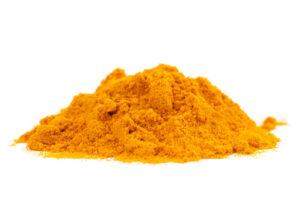Aggressive Curcumin and Cancer Treatment
Due to the antioxidant qualities of Curcumin, it decreases swelling and inflammation, a key to its initial exploration as a cancer treatment. Turmeric and cancer treatments have been shown to slow the growth of a number of types of cancer tumors, particularly in the following protocols:
Curcumin and Cancer Treatment Protocols
How Curcumin Works
Due to the antioxidant qualities of Curcumin and cancer decreases swelling and inflammation, a key to its initial exploration as a cancer treatment. Turmeric has been shown to slow the growth of a number of types of cancer tumors, particularly tumors including:
- Curcumin blocks estrogen-like chemicals and can be very important for cancers that are dependent on estrogen receptor binding.
- Curcumin enhances Immunity…one of the mechanisms by which it works is to increase the strength of the immune system.
- Curcumin Stops Angiogenesis – the formation of new blood vessels essential in the growth and spread (metastasis) of cancerous tumors.
- Turmeric interferes with the actions of viruses, including hepatitis and HIV.
What Studies Tell Us About Curcumin and Cancer
Curcumin and cancer currently has the most evidence-based literature supporting its use against cancer among all nutrients. Interestingly this also includes the metabolite of curcumin and its derivatives, which are also anti-cancerous. Best of all, curcumin appears to be safe in the treatment of all cancers.
Researchers have found the effects of curcumin in more than 100 different pathways, once it gets into the cell. More specifically, curcumin has been found to:
- Inhibit the proliferation of tumor cells
- Decrease inflammation
- Inhibit the transformation of cells from normal to tumor
- Inhibit the synthesis of a protein thought to be instrumental in tumor formation
- Helps the body destroy mutated cancer cells so they cannot spread throughout the body
- Help prevent the development of additional blood supply necessary for cancer cell growth (angiogenesis)

Much of cancer in vivo curcumin power seems to lie in its ability to modulate genetic activity and expression—both by destroying cancer cells and by promoting healthy cell function. It also promotes anti-angiogenesis, i.e. it helps prevent the development of additional blood supply necessary for cell growth of cancer curcumin against resistant tumors.
Some studies indicate that turmeric curcumin protects against liver diseases, stimulates the gallbladder and circulatory systems, reduces cholesterol levels, dissolves blood clots, helps stop external and internal bleeding, and relieves painful menstruation and angina (chest pain). It is also used as a remedy for digestive problems such as irritable bowel syndrome, colitis, Crohn’s disease, and illnesses caused by toxins from parasites and bacteria.
- Nutritional deficiencies and hormonal imbalances
- Toxins and pollution
- Chronic infections
- Infectious toxic byproducts
- Chronic stress
- Chronic inflammation
- Free radical damage
- Thoughts and emotional conflicts
References on Curcumin and Cancer
31590362, NLM, MEDLINE, 20200304, 20200304, 11 10, 2019 Oct 5, Curcumin and Cancer., 10.3390/nu11102376 [doi], 2376, Curcumin, a polyphenol extracted from Curcuma longa in 1815, has gained attention from scientists worldwide for its biological activities (e.g., antioxidant, anti-inflammatory, antimicrobial, antiviral), among which its anticancer potential has been the most described and still remains under investigation.
The present review focuses on the cell signaling pathways involved in cancer development and proliferation, and which are targeted by curcumin. Curcumin has been reported to modulate growth factors, enzymes, transcription factors, kinase, inflammatory cytokines, and proapoptotic (by upregulation) and antiapoptotic (by downregulation) proteins. This polyphenol compound, alone or combined with other agents, could represent an effective drug for cancer therapy.
Giordano, Antonio; Giordano A; Sbarro Institute for Cancer Research and Molecular Medicine and Center of
Biotechnology, College of Science and Technology, Temple University, BioLife Science Bldg, Suite 431-1900 N 12th Street, Philadelphia, PA 19122, USA. giordano@temple.edu. Tommonaro, Giuseppina, AU – Tommonaro G. Institute of Biomolecular Chemistry, National Research Council of Italy, Via Campi, Flegrei, 34-80078 Pozzuoli, Italy. gtommonaro@icb.cnr.it. Journal Article, Review, Cell Proliferation/drug effects, Curcumin/pharmacokinetics/*therapeutic use, Neoplasms/*drug therapy/metabolism/pathology. Nutrients. 2019 Oct 5;11(10):2376. doi: 10.3390/nu11102376.
Catanzaro M, Corsini E, Rosini M, Racchi M, Lanni C. Immunomodulators Inspired by Nature: A Review on Curcumin and Echinacea. Molecules. 2018 Oct 26;23(11):2778. doi: 10.3390/molecules23112778. PMID: 30373170; PMCID: PMC6278270.
Shanmugam MK, Rane G, Kanchi MM, Arfuso F, Chinnathambi A, Zayed ME, Alharbi SA, Tan BK, Kumar AP, Sethi G. The multifaceted role of curcumin in cancer prevention and treatment. Molecules. 2015 Feb 5;20(2):2728-69. doi: 10.3390/molecules20022728. PMID: 25665066; PMCID: PMC6272781.
Wu L, Guo L, Liang Y, Liu X, Jiang L, Wang L. Curcumin suppresses stem-like traits of lung cancer cells via inhibiting the JAK2/STAT3 signaling pathway. Oncol Rep. 2015 Dec;34(6):3311-7. doi: 10.3892/or.2015.4279. Epub 2015 Sep 16. PMID: 26397387.
Curcumin, a polyphenol extracted from Curcuma longa in 1815, has gained attention from scientists worldwide for its biological activities (e.g., antioxidant, anti-inflammatory, antimicrobial, antiviral), among which its anticancer potential has been the most described and still remains under investigation. The present review focuses on the cell signaling pathways involved in cancer development and proliferation, which are targeted by curcumin. Curcumin has been reported to modulate growth factors, enzymes, transcription factors, kinase, inflammatory cytokines, and proapoptotic (by upregulation) and antiapoptotic (by downregulation) proteins. This polyphenol compound, alone or combined with other agents, could represent an effective drug for cancer therapy.
For answers and to make an appointment, call toll-free 800-923-7878 to speak with our Patient Care Team.
Recover your vitality, reclaim your energy and rediscover your health.


